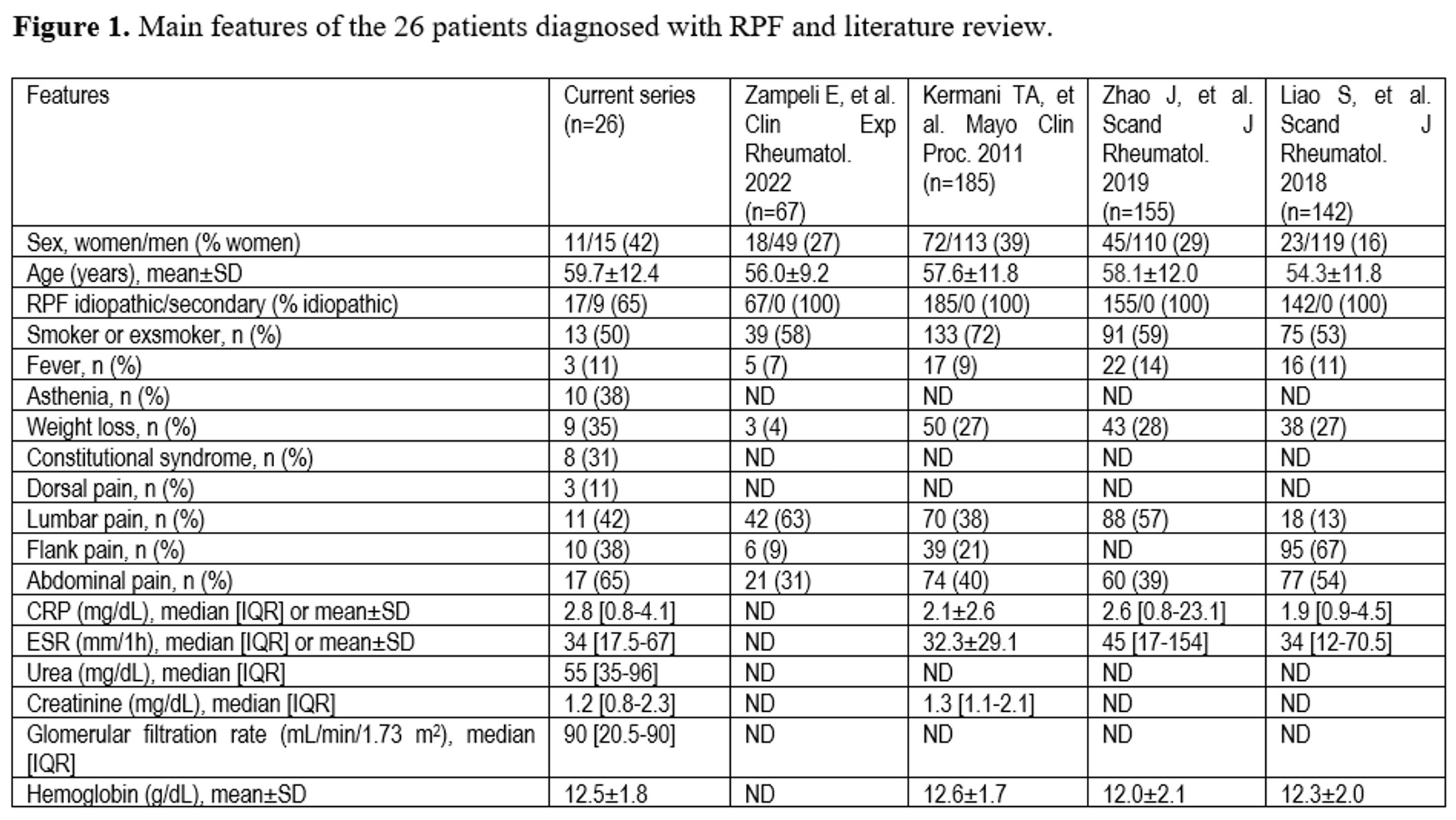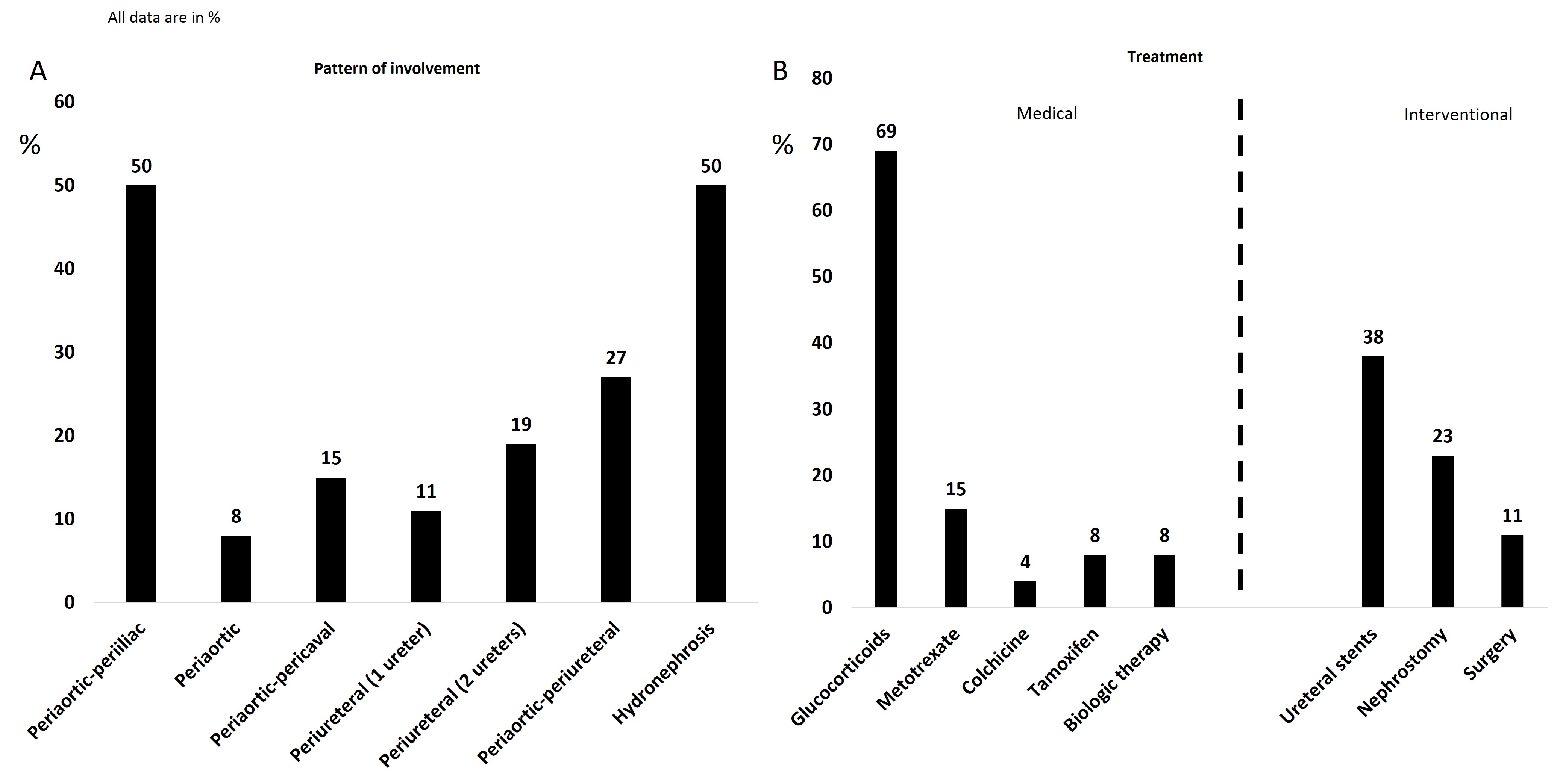Session Information
Session Type: Poster Session C
Session Time: 10:30AM-12:30PM
Background/Purpose: Retroperitoneal fibrosis (RPF) is usually idiopathic (iRPF), but may be secondary to drugs, neoplasms, infections, or may be part of an IgG4-related disease.
Our aim was to evaluate the clinical features, analytical features, imaging findings and treatment modalities in patients with RPF.
Methods: Patients diagnosed with RPF in a referral hospital between 2000 and 2023. For the literature review, we searched PubMed and the Cochrane library from its inception until 31 December 2023, selecting those series with the largest number of patients.
Results: We present 26 patients (11 females/15 males) with RPF. The mean±SD age of the patients at diagnosis was 59.7±12.4 years. Seventeen patients had an iRPF. In the remaining 9 patients, RPF was secondary to: neoplasia (n=5; 19%), radiotherapy (n=2; 8%), acute pancreatitis (n=1; 4%), IgG4-related disease (n=1; 4%). The main characteristics of the patients are listed in the Figure 1. Fifty percent of the patients were smokers or ex-smokers. Abdominal pain (65%) and low back pain (42%) were the most frequent manifestations. Elevation of acute phase reactants was observed in 15/20 (75%) patients and worsening renal function in 10/25 (40%) patients. In the literature review, 4 series of more than 50 patients each were selected. The main data from the different series are listed in Figure 1. The diagnosis of RPF was made by ultrasounds (n=16; 61%), CT (n=24; 92%), MRI (n=2; 8%), PET/CT (n=6; 23%). The most frequent pattern of involvement was periaortic-periiliac (50%) and hydronephrosis (50%) (Figure 2A). Glucocorticoids were the most frequent medical treatment (69%). The most frequent interventional procedure was ureteral stenting (38%) (Figure 2B).
Conclusion: RPF is a rare entity that may be idiopathic or secondary to other processes. Abdominal pain and abdominal pain are frequent manifestations. Glucocorticoids are the medical treatment of choice and ureteral stenting is the most commonly used interventional procedure.
To cite this abstract in AMA style:
Martín-Gutiérrez A, Loricera J, Lopez-Gutierrez F, Blanco-Alonso R. Clinical Features and Treatment of Retroperitoneal Fibrosis in a Referral Hospital and Literature Review [abstract]. Arthritis Rheumatol. 2024; 76 (suppl 9). https://acrabstracts.org/abstract/clinical-features-and-treatment-of-retroperitoneal-fibrosis-in-a-referral-hospital-and-literature-review/. Accessed .« Back to ACR Convergence 2024
ACR Meeting Abstracts - https://acrabstracts.org/abstract/clinical-features-and-treatment-of-retroperitoneal-fibrosis-in-a-referral-hospital-and-literature-review/


